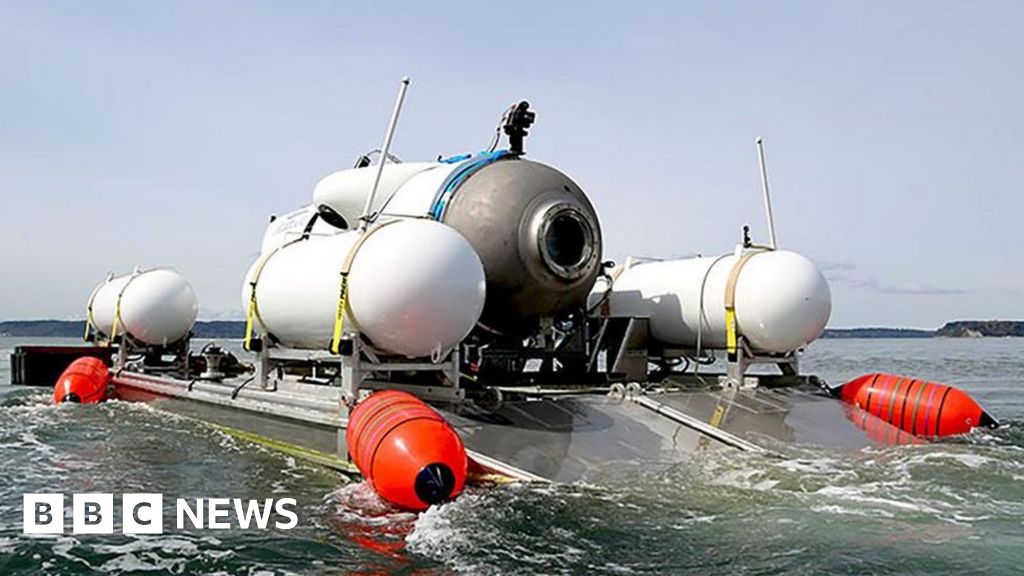
www.bbc.com
Titan sub: What happens next after sounds detected in search
With oxygen supplies dwindling - under 24 hours' worth remains - the next few hours are critical.
Science & Tech
News that noises have been picked up in the hunt for a missing submersible has offered a glimmer of hope that the five men on board are alive.
The sounds were recorded by sonar buoys in a massive rescue operation, which is racing against time to find the Titan in the middle of the Atlantic Ocean. It was lost on a deep-sea voyage to the Titanic wreck three days ago.
Underwater operations have been relocated to investigate the noises, the US Coast Guard has said, but so far they haven't found anything.
And with oxygen supplies expected to run out at around 11:00 GMT on Thursday, the next few hours are critical.
US authorities say the noises were heard at half hour intervals for about four hours on Tuesday, according to reports by several outlets.
Deep-sea experts told the BBC it has spoken to say it is hard to determine what these noises might be without seeing the data - and the commander leading the search also confirmed the source of them is unknown.
But it is possible they could be short, sharp, relatively high frequency noises - made from within the vessel by hitting a hard object against the end of the sub.
Frank Owen, from the Submarine Institute of Australia, says he is confident - based on the information available - the sounds are coming from inside the vessel.
"If there was a 30-minute interval, it's very unlikely to be anything but human related," he told the BBC.
The men on board include British businessman Hamish Harding, 58, British-Pakistani businessman Shahzada Dawood, 48, his son Suleman, 18, and Stockton Rush, 61, the chief executive of OceanGate, which runs the voyages at a cost of $250,000 (£195,270) per head.
But Mr Owen says the noises "smack of advice" coming from the fifth man on board - 77-year-old Paul-Henry Nargeolet, a former French navy diver and renowned explorer.
"He would know the protocol for trying to alert searching forces… on the hour and the half hour you bang like hell for three minutes," Mr Owen said.
The decision to relocate the search indicates authorities are thinking similarly.
But in previous maritime searches - like those for missing Malaysian Airlines flight MH370 in 2014, and the Russian submarine Kursk in 2000 - underwater noises were heard too, and yielded no results.
The other ray of hope is that these sounds were picked up by the sonar buoys at all, Mr Owen says.
The Titanic lays 12,500ft (3,800m) beneath the ocean surface, where the sonar buoys sit.
While sounds from deep ocean layers could get through to them, it is more likely that the sounds are coming from the same ocean layer, Mr Owen says.
"It is very difficult to hear noise below the [top] layer because the sound gets refracted by this drop in temperature."
"But when it's in that isothermal layer... between the surface and 180 metres... the sound behaves really quite straight."
Mr Owen says if the sounds are indeed coming from the sub, rescuers should be able to locate it pretty quickly.
"[They can] lay a pattern of buoys around that area so they can get cross bearings."
"The sonar buoys receiver is able to plot that sort of information really very quickly... it would take a very short time to find."
However, the underwater vehicles which have been sent to find the origin of the noise "have yielded negative results", according to the US Coast Guard's latest update.
























































